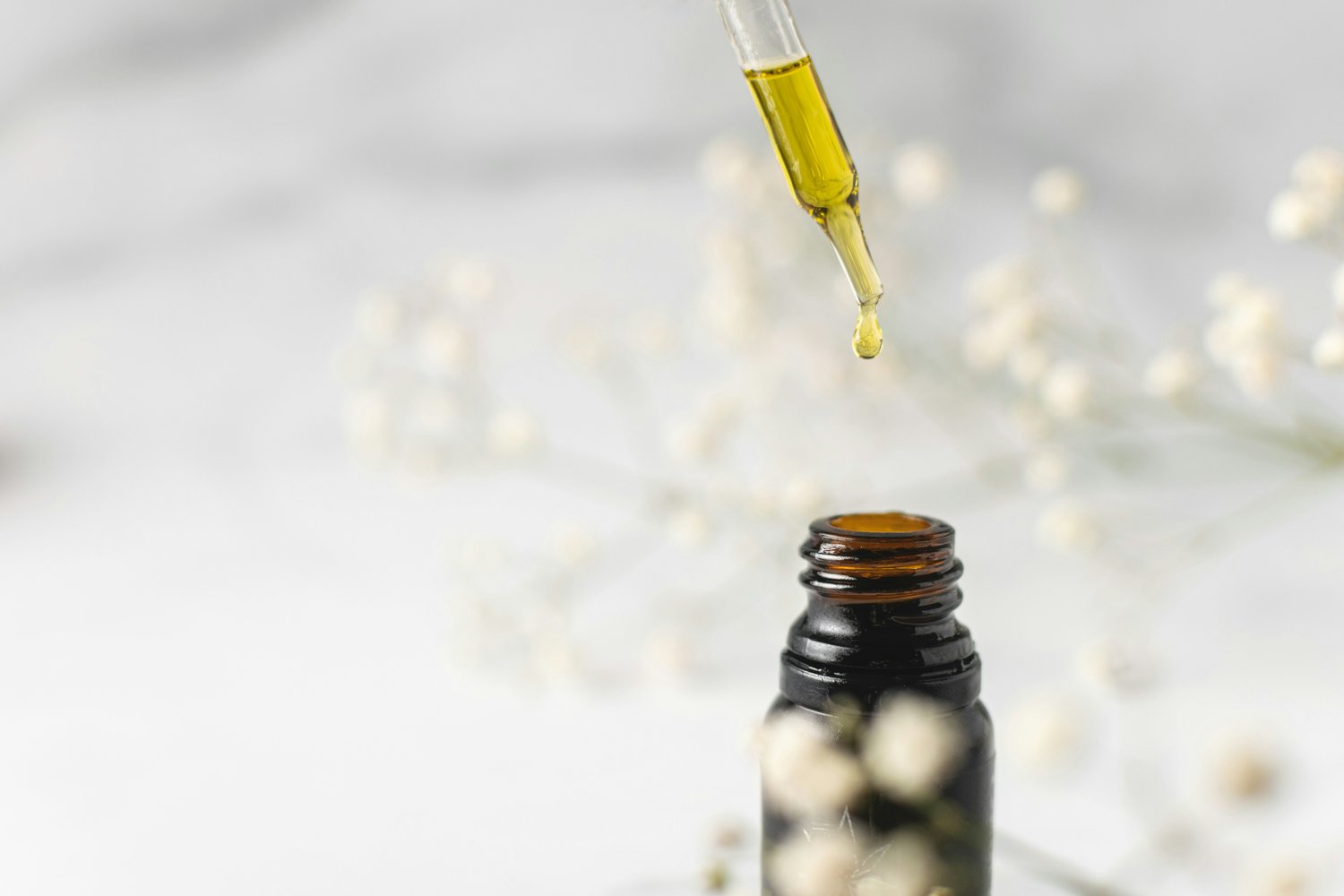Image: https://unsplash.com/photos/clear-glass-bottle-with-yellow-lid-Qd37vTyByBs
CBD products have gained popularity for their potential health benefits. Two common forms are CBD isolate and CBD oil. CBD isolate is a pure form of cannabidiol, containing no other compounds from the hemp plant, making it a good choice for those wanting only CBD, such as CBD Isolate Powder on Dr Ganja.
In contrast, CBD oil, known as full-spectrum or broad-spectrum, includes various other compounds from the hemp plant. This means it contains CBD and other cannabinoids, terpenes, and possibly THC, depending on the type. Combining these elements in CBD oil may provide an improved effect, often called the “entourage effect.”
Understanding the difference between these forms can guide better choices for those exploring hemp products. Whether it’s the pure form many seek or the broader compound mix, consumers have various options to suit different needs.
Understanding CBD
CBD, or cannabidiol, is a compound found in cannabis plants, known for its potential health benefits. It comes in various forms, each having specific characteristics. This section explains key differences between CBD isolate and CBD oil, how they’re extracted, and their chemical compositions.
Defining CBD Isolate and CBD Oil
CBD isolate and CBD oil are two popular forms of CBD products. CBD isolate is a pure form of CBD with no THC, other cannabinoids, or plant compounds. It usually appears as a white powder and is noted for its purity. On the other hand, CBD oil may contain other parts of the hemp plant, including THC and other cannabinoids, which can contribute to the entourage effect. This effect theorizes that the combined natural substances may improve CBD’s effects.
Extraction Processes
The process of extracting CBD involves removing it from the cannabis plant. Two common methods are used for extraction: CO2 extraction and ethanol (or alcohol) extraction. The CBD extraction process can influence the final product’s purity and quality. CO2 extraction is popular for creating CBD isolate because it allows for precise control and produces a purer product. Ethanol extraction is another method that effectively draws out CBD along with other plant compounds, making it suitable for full-spectrum oils.
Chemical Composition
The chemical composition of CBD isolate is straightforward. It is typically more than 99% pure CBD with no THC or other cannabinoids. This makes it ideal for people looking for CBD without any additional compounds. In comparison, CBD oil includes a blend of ingredients from the hemp plant, such as other cannabinoids and terpenes. These elements can add aroma flavor and boost the synergistic health effects of the oil. The presence of multiple compounds in CBD oil can vary its effectiveness and how it interacts with the body.
Comparative Analysis
Understanding the differences between CBD isolate and CBD oil is important for making informed choices. This section explores their purity, therapeutic effects, usage, and taste preferences to provide a clear comparison.
Purity and Concentration
CBD Isolate is pure cannabidiol, typically found as a white powder or crystals, with over 99% CBD content. It contains no other plant compounds or THC, which makes it ideal for those who wish to avoid these components. This high purity level guarantees a consistent dosage of CBD, allowing precise control over the amount consumed.
In contrast, Full-Spectrum CBD Oil includes various cannabinoids, terpenes, flavonoids, and trace amounts of THC. This mixture provides the “entourage effect,” where combined compounds may offer improved benefits. The purity of full-spectrum oil is lower than isolate due to the presence of these additional compounds.
Therapeutic Effects
Full-spectrum CBD Oil is often favored for its comprehensive range of therapeutic benefits. It potentially offers improved relief for pain and inflammation due to the entourage effect. This synergistic interaction between cannabinoids and other compounds might increase the oil’s effectiveness for certain users.
In comparison, CBD Isolate delivers benefits solely through cannabidiol. It may be effective for specific uses, such as reducing anxiety or promoting relaxation. However, its singular focus might limit the broad spectrum of relief compared to full-spectrum products.
Usage and Application
The application of CBD isolate and full-spectrum oil varies based on user needs. CBD isolate can be mixed into foods and beverages or used in homemade topical products. Its lack of taste and versatility make it appealing to those who prefer a neutral option.
Full-spectrum oil is commonly taken sublingually or added to food. It might be available in capsules, tinctures, and edibles. The presence of additional compounds can influence the choice of application, as some users may seek specific cannabinoid interactions in product form.
Taste and Preferences
The taste of CBD products can significantly impact user preference. CBD Isolate is generally tasteless, appealing to those who prefer an unflavored product. Its purity allows for incorporation into various items without altering taste significantly.
Conversely, Full-Spectrum CBD Oil has a natural, earthy flavor due to the full range of plant compounds. Some users enjoy this taste, reflecting the product’s natural origin. Others might find it too strong, opting for flavored options or alternative formulations to suit their palate.
Conclusion
When comparing CBD isolate and CBD oil, each has different benefits. CBD isolate is pure cannabidiol and contains no other compounds. This purity might be ideal for those who want only CBD without any other elements from the plant.
In contrast, CBD oil, which often refers to full-spectrum CBD, includes other compounds like cannabinoids and terpenes. These additional components may work together to improve the effects of the CBD. This interaction is often referred to as the “entourage effect.”
Choosing between the two depends on personal preferences and health goals. CBD isolate offers a straightforward approach, while full-spectrum CBD oil might provide a more complex profile of benefits. It is important to consider these differences when choosing the right product for individual needs.



